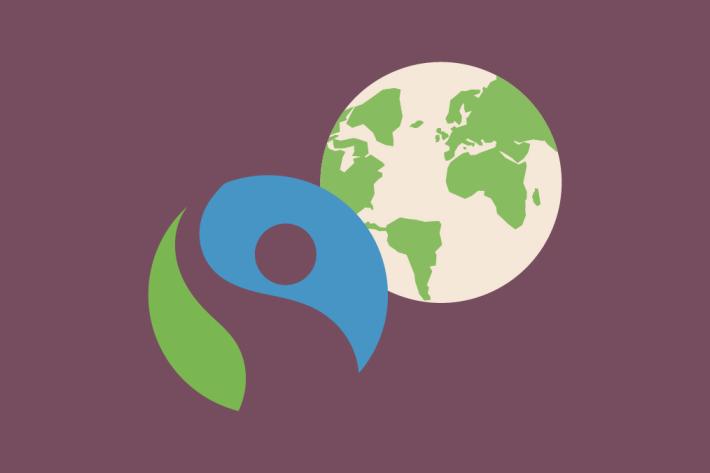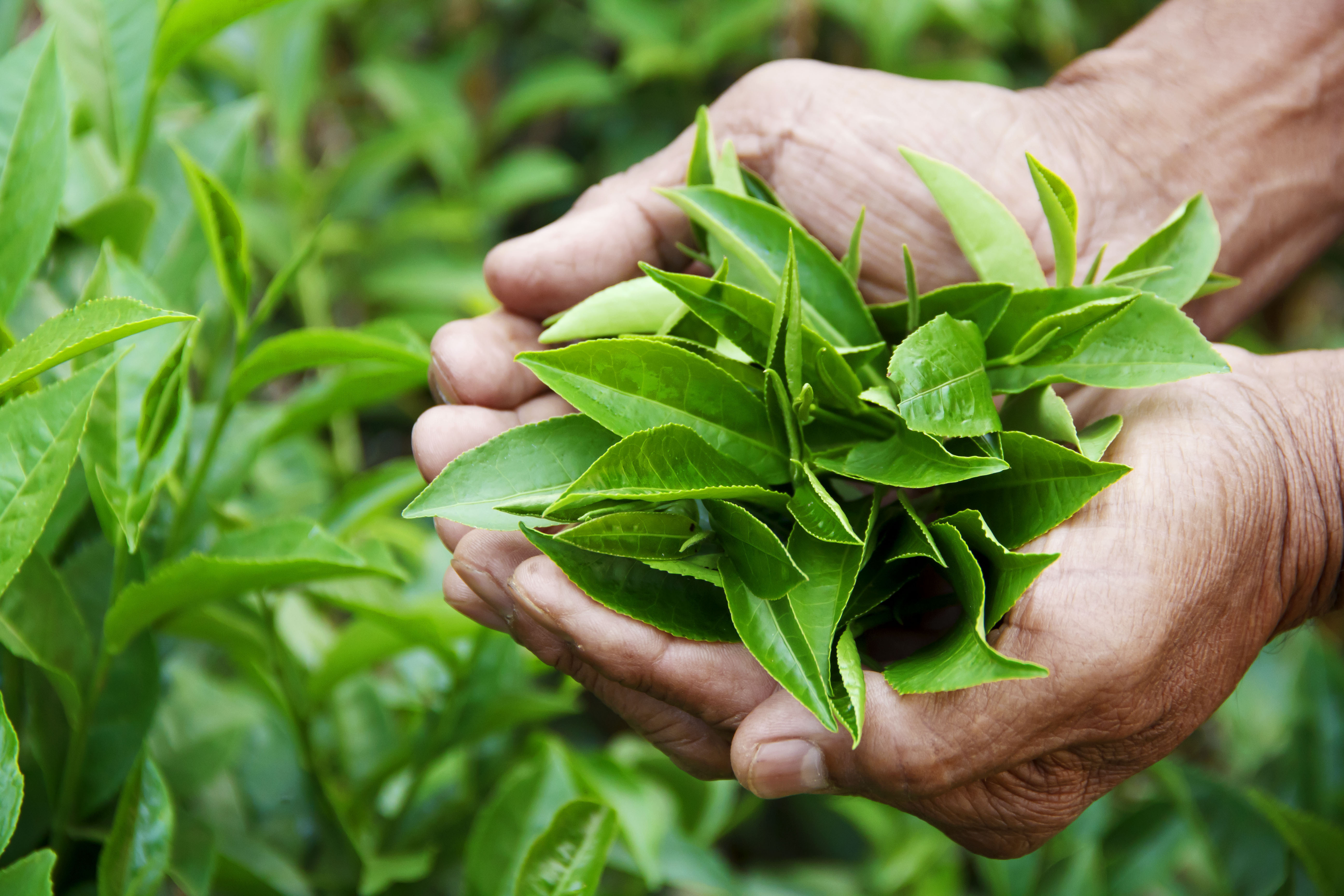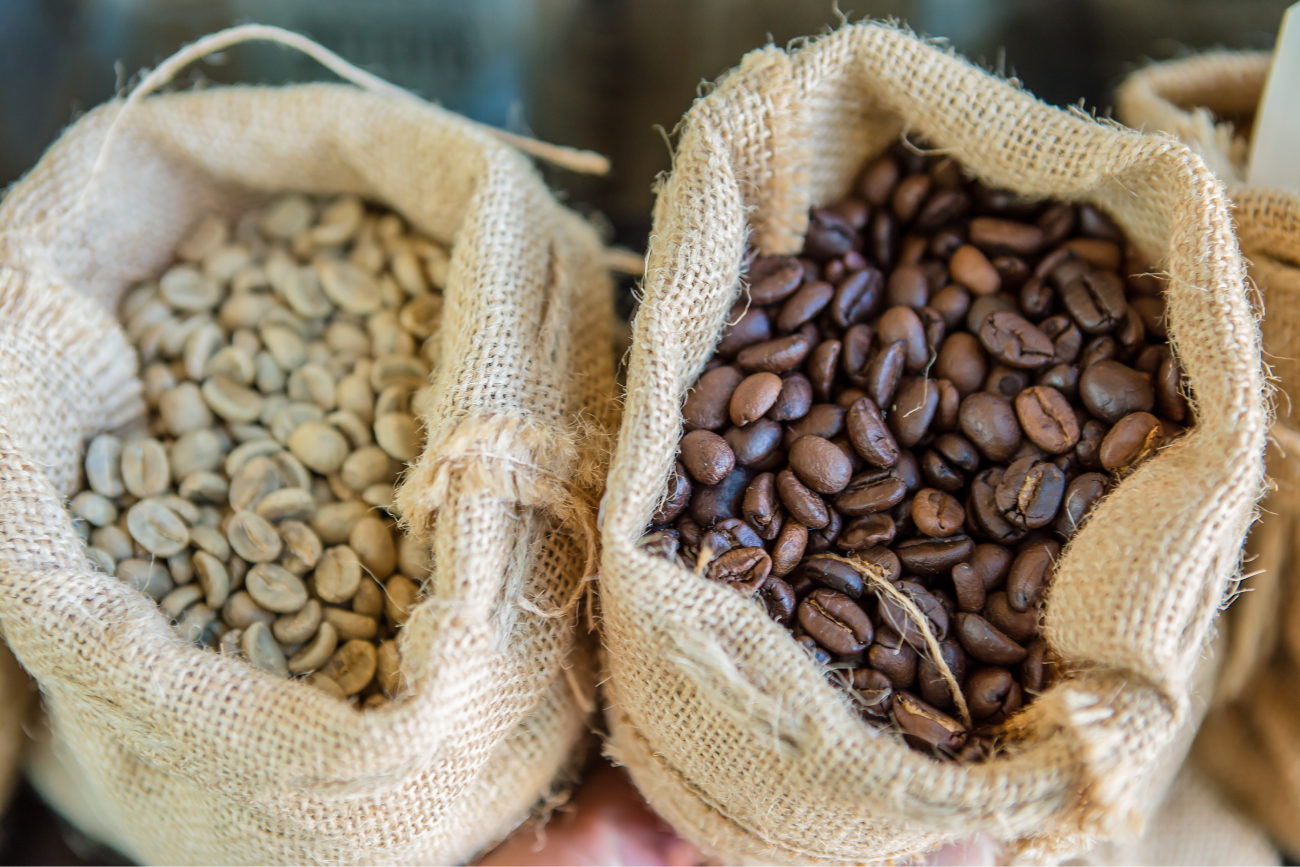Fair Trade and Climate Change: why being a Fair Trade Nation matters?
4 March 2022

Climate change is a global issue. We all need a healthy planet to thrive. However, climate change affects everyone and every country differently – depending on the social, economic, political conditions in which they live.
Farmers of crops such as tea, coffee, and cocoa feel the impact of climate change, volatile market prices, and rising production costs and have little power in the multi-million-pound supply chains they supply. On top of this, they are dealing with freak weather, extreme rainfall, prolonged dry seasons, and the prevalence of plant diseases in their crops.

As a Fair Trade Nation, the people of Scotland are committed to ensuring that farmers and producers in the Global South are paid a fair price for their goods. On top of the price farmers and workers receive for their produce or labour, they receive an extra sum of money to invest in improving the quality of their lives. This extra sum of money is called the Fairtrade Premium. By choosing Fairtrade tea, coffee, bananas, and chocolate we can make a significant impact on the lives of thousands of people who still live below the poverty line. It also means that farmers and producers are more able to combat the effects that climate change has on their crops. By coming together, Fair Trade can make sure consumers are still able to purchase the products they love, but, more importantly, support those whose livelihoods rely on them.
Fair Trade offers a solution that helps individuals, businesses, and communities prioritise the planet and people over profit. It also connects voices in Scotland with those around the world to create a better, more ethical world.
What does Fair Trade mean?
Fair Trade is a simple way to make a difference in the lives of people worldwide who grow and create the things we love. Its ambition is to make trade fair and ethical by introducing standards that consider the needs of farmers and work and which produce the best product for the consumer.
As one of the world’s largest and most diverse movements for change, there are 1.8 million farmers and workers involved in Fair Trade and more than 2,000 Fair Trade Towns in 28 countries: working together, providing more reasonable prices to farmers and workers, building stronger communities, and enabling farmers and workers more control over their future.
The key benefits of Fair Trade include that it:
- Gives farmers and workers a fairer income
- Protects workers through solid and transparent standards
- Supports women-led businesses
-
Helps deliver the Sustainable Development Goals
How is Fair Trade part of the solution to climate change?
Fair Trade helps support producers and farmers from low-income countries by providing a fair price for their goods. Paying a fair and stable price allows farming to be more resilient in the face of adverse weather and adopt more sustainable farming practices without worrying about affording medicine, food, or their children’s education and housing.
Additionally, Fair Trade works with producers to help reduce carbon emissions and drive investments in sustainable farming methods. Fair Trade work collaboratively with those on the front line of the climate crisis to allocate priorities and funding to help reach net zero at home and abroad.
By supporting and purchasing Fair Trade goods, you are helping to progress climate justice around the world, and giving producers and farmers the support they need to reduce their carbon emissions and produce goods more sustainably.
What does the Fairtrade Mark tell me?
It’s easy to be confused by the number of labels, certifications and company claims on packaging. The purpose of the Fairtrade Mark is to indicate when a product meets the Fairtrade Standards by the producers and traders. This means:
- The product has a Fairtrade Minimum Price, which protects producers against falling prices and gives them a safety net to allow additional investment into their business and community.
- The product uses eco-friendly and farming-appropriate methods, such as responsible water and waste management, preserving biodiversity, soil fertility, and minimal pesticides.
- The producer must comply with non-discriminatory employment practices, pay equal or higher rates, and look after the health and safety of workers.
You’ll commonly see the Fairtrade Mark on products in the supermarket, such as coffee, chocolate, bananas, sugar, tea, rice, honey, and flowers. We need everyone in Scotland to make more conscious and sustainable purchasing decisions where they can and make the items in their daily or weekly shop more ethically and environmentally friendly.
Looking for the Fairtrade Mark on products is an easy way to know that you are buying products that have been produced meeting these standards of fairness, sustainability and good working conditions.
